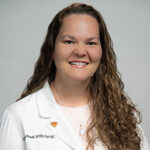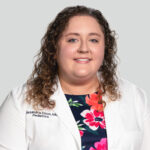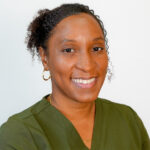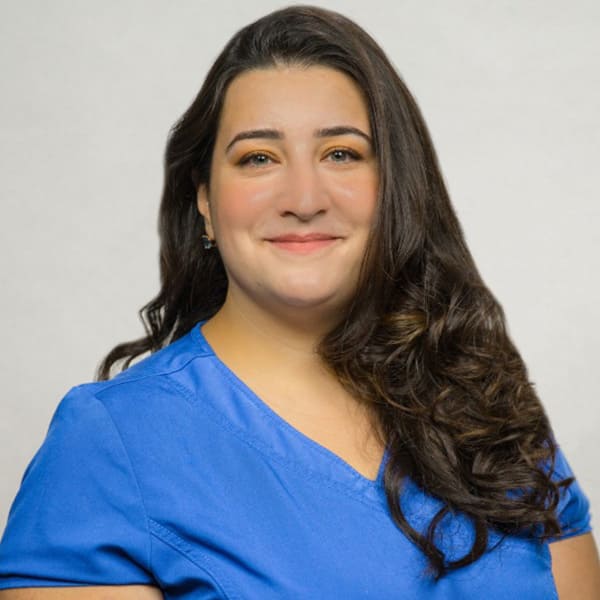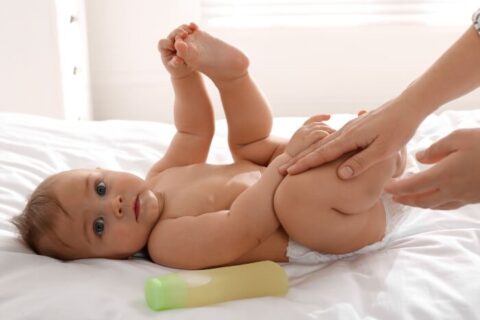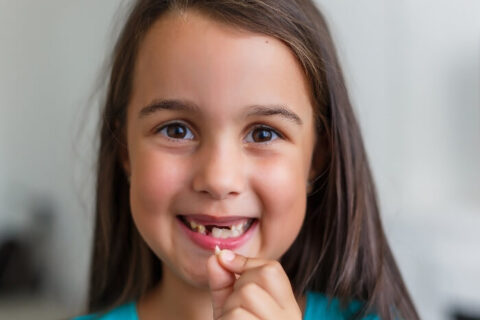Children’s Dental Health Month
Every February, the American Dental Association celebrates National Children’s Dental Health Month. The month-long observance puts emphasis on the importance of oral health in children, as well as highlighting tips for parents and guardians to use with their kids to keep their smiles on track!
Did You Know?
Did you know that the most common condition among children is largely preventable?! According to the American Academy of Pediatric Dentistry, dental caries – or cavities – are four times more common than childhood asthma and three times more likely than childhood obesity!
Fast Facts
- Tooth decay is the NUMBER ONE chronic infectious disease affecting children in the United States and is on the rise, but it is largely preventable.
- By age 5 about 60% of children will be affected by tooth decay.
- Children with oral health problems are THREE TIMES more likely to miss school due to dental pain than children with no oral health problems.
- AAPD recommends taking a child for their first dental visit by the age of 1.
Cavities
According to the CDC, untreated cavities can cause pain, infections, and can lead to problems eating, speaking, and learning.
- More than 1 in 5 children ages 2-5 has at least one cavity in their baby teeth.
- Children from low-income families are more than twice as likely to have untreated cavities, compared with children from higher-income households.
The CDC’s PEARLS of Wisdom
- Protect tiny teeth by caring for your mouth when you are pregnant. Your child’s future oral health starts with you.
- Ensure to wipe your baby’s gums after each meal.
- Avoid putting babies to bed with a bottle.
- Remember to brush your child’s teeth twice daily with fluoride toothpaste. For children younger than 2 years, consult with your dentist or doctor about when to start using fluoride toothpaste.
- Limit drinks and food with added sugars for children. Encourage your child to eat more fruits and vegetables and have fewer fruit drinks, cookies, and candies. This gives your child the best possible start to good oral health.
- Schedule your child’s first dental visit by their first birthday or after their first tooth appears. Their tiny teeth matter!
Your Child’s Diet and Habits Can Impact Their Teeth!
The CDC recommends including good sources of calcium to your child’s diet to help build strong teeth. This could be in the form of yogurt, broccoli, and milk!
In addition, eating fruits and vegetables for snacks rather than sweets and serving water at mealtime instead of juice or soda will go a long way to protecting their teeth.
The Early Childhood Learning and Knowledge Center shares the following tips:
- Serve your child healthy foods that are low in natural and added sugar.
- Serve milk or tap (faucet) water with meals and snacks.
- Give your child a variety of healthy snacks, such as cheese and crackers, at scheduled times during the day.
- Give your child tap water several times a day.
- Avoid serving drinks that are high in natural or added sugar, such as fruit juice, fruit drinks, and pop/soda.
- Brush your child’s teeth with fluoride toothpaste twice a day.
- For children under age 3, use a rice-size amount of fluoride toothpaste.
- For children ages 3 to 6, use a pea-size amount of fluoride toothpaste.
- After toothbrushing, rinse the brush and store it upright in a holder to air dry. Do not let toothbrushes touch each other.
- Do not share toothbrushes. Sharing toothbrushes can transfer disease-causing germs from one person to another.
- If anyone in the family is sick, keep their toothbrush away from everyone else’s toothbrushes. Replace the toothbrush after the family member is better.
Tips for Parents and Pregnant Women from Head Start and Early Head Start
- Do not delay getting oral health treatment: If your child’s dentist finds tooth decay and recommends a follow-up dental visit for treatment, it’s important for your child to get care. Receiving follow-up treatment is key to keeping your child healthy.
- Child Pacifier Use: Long term use of pacifiers can affect your child’s bite and the growth of the jaws and bones that support their teeth. If your child shows no interest in giving up their pacifier by age 4, they may need help to stop.
- First tooth, first birthday, first dental visit: A dental visit by age 1 is key for building a lifetime of good oral health. Tooth decay can be prevented or managed with early dental visits and with good oral hygiene.
- Bedtime Routines: A regular bedtime routine helps your child know what to expect at the end of the day. Brushing your child’s teeth with fluoride toothpaste is an important part of the routine.
- Water Intake: Giving children water with fluoride helps keep their teeth healthy. Learn about fun and easy ways to encourage children to drink water with fluoride.
- The importance of Baby Teeth: Baby (primary) teeth are a child’s first set of teeth and by age 2½ to 3 years old, all 20 baby teeth will have come into the mouth. Taking care of a child’s baby teeth is important for their overall health and development.
How Can Brevard Health Alliance Help?
Talk with your healthcare provider or Brevard Health Alliance about oral health care. As Brevard County’s only Federally Qualified Health Center, BHA is here to care for you and your whole family regardless of ability to pay for services. With a wide array of service offerings from medical care to dental care to behavioral health care, we are for you!





































